
Local Traditions & Customs in Istanbul, İstanbul, Turkey

1. Turkish Tea Culture
In Istanbul, tea is more than a drink; it's a social ritual. Locals enjoy tea in tulip-shaped glasses, often accompanied by conversation. This tradition helps travelers connect with locals and experience Turkish hospitality.
- Social Interaction: Tea is often shared in social settings, fostering connections.
- Tulip-Shaped Glasses: Tea is traditionally served in small, tulip-shaped glasses.
- Tea Houses: Numerous tea houses offer a place to relax and enjoy the culture.
- Caykur Rize Tea: The most popular tea brand, known for its quality.

2. Turkish Bath (Hammam)
A visit to a Turkish bath is a cleansing and relaxing experience. Istanbul's hammams offer a unique blend of steam, massage, and exfoliation. This tradition provides a glimpse into Ottoman-era relaxation practices.
- Historical Hammams: Many hammams are centuries old, offering a historical experience.
- Steam Rooms: The steam rooms are central to the cleansing process.
- Exfoliation: A traditional scrub is part of the experience.
- Gender-Specific Areas: Hammams typically have separate areas for men and women.
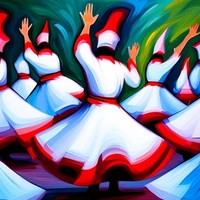
3. Whirling Dervishes
The Whirling Dervishes perform a spiritual dance that is mesmerizing to watch. This Sufi tradition symbolizes the soul's journey towards God. Attending a performance offers insight into Turkey's spiritual heritage.
- Sufi Tradition: The dance is part of the Sufi branch of Islam.
- Symbolic Dance: The whirling represents a spiritual journey.
- Cultural Performances: Performances are held in various cultural centers.
- Spiritual Experience: The dance is intended to be a meditative experience.

4. Turkish Delight (Lokum)
Turkish Delight is a sweet treat that has been enjoyed for centuries. It's often given as a gift and comes in many flavors. Sampling Lokum is a delicious way to experience Turkish culinary tradition.
- Variety of Flavors: Lokum comes in flavors like rose, lemon, and pistachio.
- Gift Tradition: Often given as a gift to show hospitality.
- Historical Confection: Has been a part of Turkish culture for centuries.
- Local Shops: Many shops specialize in making and selling Lokum.
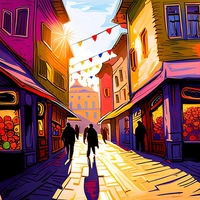
5. Istanbul's Grand Bazaar
The Grand Bazaar is one of the oldest and largest covered markets in the world. It offers a vibrant shopping experience with a wide range of goods. Visiting the bazaar is a way to engage with Istanbul's commercial traditions.
- Historical Market: Established in the 15th century, it's a historical landmark.
- Wide Range of Goods: Offers everything from jewelry to spices.
- Bargaining Culture: Haggling is a common practice in the bazaar.
- Labyrinthine Layout: The bazaar's layout is complex and maze-like.
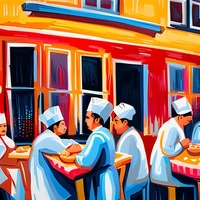
6. Istanbul's Street Food
Istanbul's street food scene is a culinary adventure. From simit to balik ekmek, the variety is vast and delicious. Sampling street food is an affordable way to taste local flavors.
- Variety of Options: Includes foods like simit, kebabs, and roasted chestnuts.
- Affordable Prices: Street food is generally inexpensive.
- Local Flavors: Offers a taste of authentic Turkish cuisine.
- Convenient Locations: Vendors are found throughout the city.

7. Istanbul's Call to Prayer
The call to prayer is a significant part of daily life in Istanbul. It echoes from mosques five times a day, creating a unique soundscape. This tradition offers insight into the city's Islamic heritage.
- Daily Ritual: Occurs five times a day, marking prayer times.
- Mosque Soundscape: The call is broadcast from mosque minarets.
- Cultural Insight: Provides understanding of Islamic practices.
- Citywide Experience: Heard throughout the city, unifying the soundscape.
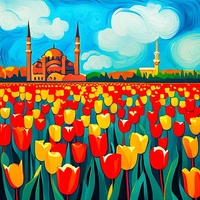
8. Istanbul's Tulip Festival
The Tulip Festival celebrates the flower's historical significance in Turkey. Held annually in spring, it features vibrant displays across the city. This festival highlights Istanbul's connection to the tulip, a symbol of beauty and culture.
- Annual Event: Held every spring, attracting locals and tourists.
- Cultural Symbol: Tulips are an important symbol in Turkish culture.
- Citywide Displays: Tulips are displayed in parks and public spaces.
- Historical Connection: Tulips have been cultivated in Turkey for centuries.

9. Istanbul's Bosphorus Cruises
A Bosphorus cruise offers stunning views of Istanbul's skyline and landmarks. It's a relaxing way to see the city from the water. This tradition allows travelers to appreciate the city's unique geographical position.
- Scenic Views: Offers views of the city's skyline and landmarks.
- Relaxing Experience: Cruises provide a peaceful way to see the city.
- Geographical Insight: Highlights Istanbul's position between two continents.
- Variety of Cruises: Options range from short tours to full-day excursions.
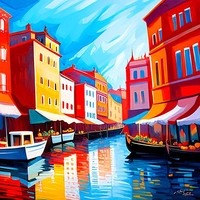
10. Istanbul's Meze Culture
Meze is a selection of small dishes served as appetizers. It's a social dining experience, often shared among friends and family. Trying meze is a way to explore the diversity of Turkish cuisine.
- Variety of Dishes: Includes a wide range of flavors and ingredients.
- Social Dining: Meze is typically shared, encouraging conversation.
- Culinary Exploration: Offers a taste of different Turkish dishes in one meal.
- Restaurant Availability: Many restaurants specialize in serving meze.
